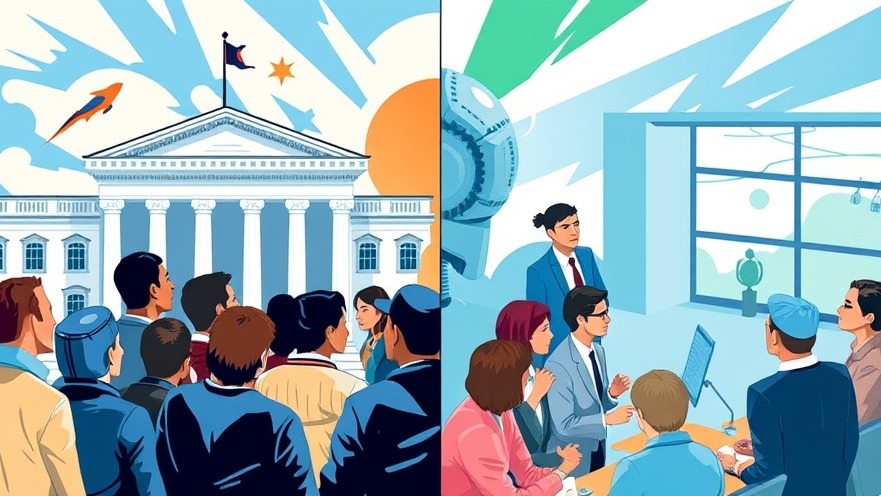
How Grok Could Challenge OpenAI’s Dominance in AI
The rapid advancement of artificial intelligence has led to competitive waves among tech giants, with OpenAI at the forefront. However, Grok, a developing AI platform, represents a potential disruption, calling into question how well-established AI entities can maintain their lead. The concept of 'judo flipping' the market—a strategy of using one's strengths to leverage the weaknesses of a competitor—can be a fascinating model for examining Grok's potential trajectory.
In Can Grok Beat OpenAI At Its Own Game?, the discussion dives into innovative strategies for AI competition, prompting us to analyze key insights relevant to franchise leadership.
Mission-Driven Engineering: The Key to Tesla’s Success
Historically, companies like Tesla have thrived on a mission-driven culture. Leaders such as Elon Musk have fostered environments rich in innovation and authenticity, recruiting teams that are passionate about their work. This contrasts sharply with more bureaucratic structures often found in established companies. For Grok to excel, mirroring this Tesla-style ethos could help attract motivated engineers ready to innovate relentlessly, pushing boundaries in AI development.
Open Service and Data Transparency: A Recipe for Disruption?
One of Musk's notable strategies has been the open sourcing of patents and technology. If Grok were to adopt a similar approach with its AI data and features, it could substantially level the playing field. Open sourcing self-driving technology, for instance, could lead to a surge in autonomous vehicle innovation. While other companies can replicate some technological facets, Grok could still maintain an advantage by controlling the production quality and efficiency of their AI systems.
Vertical Integration: The Advantage of Total Control
Musk emphasizes that the manufacturing process—namely, the factories that produce AI technology—constitutes a competitive advantage. For Grok, developing a holistic view on vertical integration, where the entire ecosystem from development to deployment is controlled, could yield superior outcomes. This integration ensures that both the product and its manufacturing correlates closely with targeted consumer needs.
Learning to Embrace Disruption: Future Predictions
As businesses evolve, the emergence of more sophisticated AI technologies seems inevitable. With the industry eager for adaptation, future predictions lean towards a landscape where companies capable of incorporating advanced AI systems effectively will dominate. For Grok, riding this wave of transformation could solidify its relevance against established players like OpenAI.
The Role of Innovative Leadership in AI Integration
The discourse surrounding leadership styles—particularly the balance between visionary thinking and operational efficiency—is vital in the AI landscape. As Grok strives to compete, understanding the impact of this leadership on enabling technology adoption within franchises is crucial. Franchise leaders are encouraged to nurture a culture that embraces innovation and promotes agile responses to technological change.
In Can Grok Beat OpenAI At Its Own Game?, a spirited discussion reveals pivotal strategies for navigating the competitive AI landscape. We analyze these insights further, applying them to the franchise arena where technology must continuously evolve to meet changing consumer demands.
 Add Row
Add Row  Add
Add 




Write A Comment